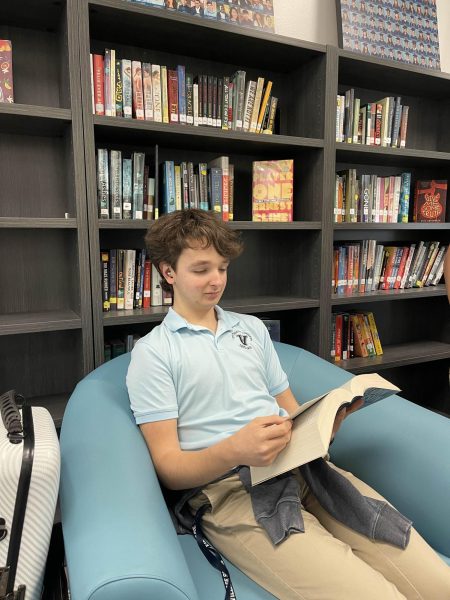For just about any reader, whether a casual peruser or bibliophile, the worst obstacle one can face would be the infamous “Reading Slump”. For those unfamiliar, a reading slump happens when one loses all interest and/or motivation to read. If you find yourself in such a predicament, don’t fret, for there are plenty of ways to conquer the reading slump, no matter how intimidating it may be!
The most jarring part of the slump is that it can come for you at any time, no matter the point you are at in a book. Most of the time, pinpointing the exact cause of the plight can be difficult for there is not a finite number of issues that it can sprout from: primary causes include (but are certainly not limited to) reading burnout, hangover, and time.

- Reading burnout is exactly what it sounds like; Your flame for literature has been extinguished after forcing yourself to read too many books you couldn’t care less for, or maybe it’s turned from a once meaningful endeavor to a chore.
- The hangover of discovering a book that you can’t see being topped and the disappointment of its end can be the most painful cause of a reading slump, with a ceaseless fear of your expectation being impossible to meet by any other work.
- The most common cause would be time if you haven’t picked up a book in ages; the indecision that it can create is often paralyzing, only further perpetuating the whole problem.
Now that primary causes have been classified, it’s time to identify the solutions.
- Reading old material/material you know you like:
- This would be the most applicable for any kind of reading slump as it is viable as long as you have a dependable selection of books you’ve read in the past. Reading a book you know you like or have already read guarantees entertainment and satisfaction in your experience.
- Easy reads:
- Maybe you were trying out a tough book or were assigned a long novel in English class, but sometimes having to read works that happen to take up energy can burn you out the quickest, especially if it’s written in classic or older language. Taking on an easier read of one’s level or lower can be a surefire method of refueling the tank, and it can make reading feel like less of a demanding activity.
- Trying something completely new:
- Whether you think you’ve read the best book in your entire life or are traumatized from assigned readings at school, sometimes the most efficient way of getting back into it is to completely change genre/author, and try something new and unexpected. This removes all expectations and/or reservations that you had for a previous read and can work as almost a fresh start.
- Having a routine:
Even with the goal of creating reading habits, it can feel like you could be doing anything besides. Whether that means organizing your entire deskspace or hanging out with friends, finding a moment to lean back and read can be testing. Periodically scheduling a time in your day or even week specifically for reading can create habit over time, hopefully leading to it being a regular activity that doesn’t even require planning.
- Having a reading community/partner:
- Having someone to experience books with can become a huge motivator to get into a habitual relationship with reading. This could be allotting 15 minutes a day to an hour to the task in the presence of others as it works as a system of accountability.
- Changing your environment:
- Like getting a breath of fresh air, changing one’s scenery can create a positive environment for focusing and fewer distractions. Compared to reading at home where you might be more accustomed to sitting on your phone, playing with your cat, or talking with family, moving to a library, cafe, or school room can minimize the risk of getting off-task. This not only applies to reading but most tasks that require focus!
- Taking a break:
- Pressuring yourself into reading could be the least productive way to get started. That kind of strain can turn a hobby into a dreadful drudge, leading to a far more adverse reaction to getting yourself into books. So, sometimes the best solution is the simplest, and taking a break from reading can create a new start to one’s relationship with literature.
If you can’t find yourself a book nor a ride to a local library/bookstore, for students at The Village School, the on-campus library is a great place to begin or resume your journey. Reading can sometimes feel like it’s not worth the constant focus or commitment of time, but it has too many benefits to ignore for something that can be so pleasant of an endeavor. From perks like better memory and literacy to less stress, books are among the most productive pastimes you can take up. So the next time you find an opportunity to read, take it and enjoy it.








